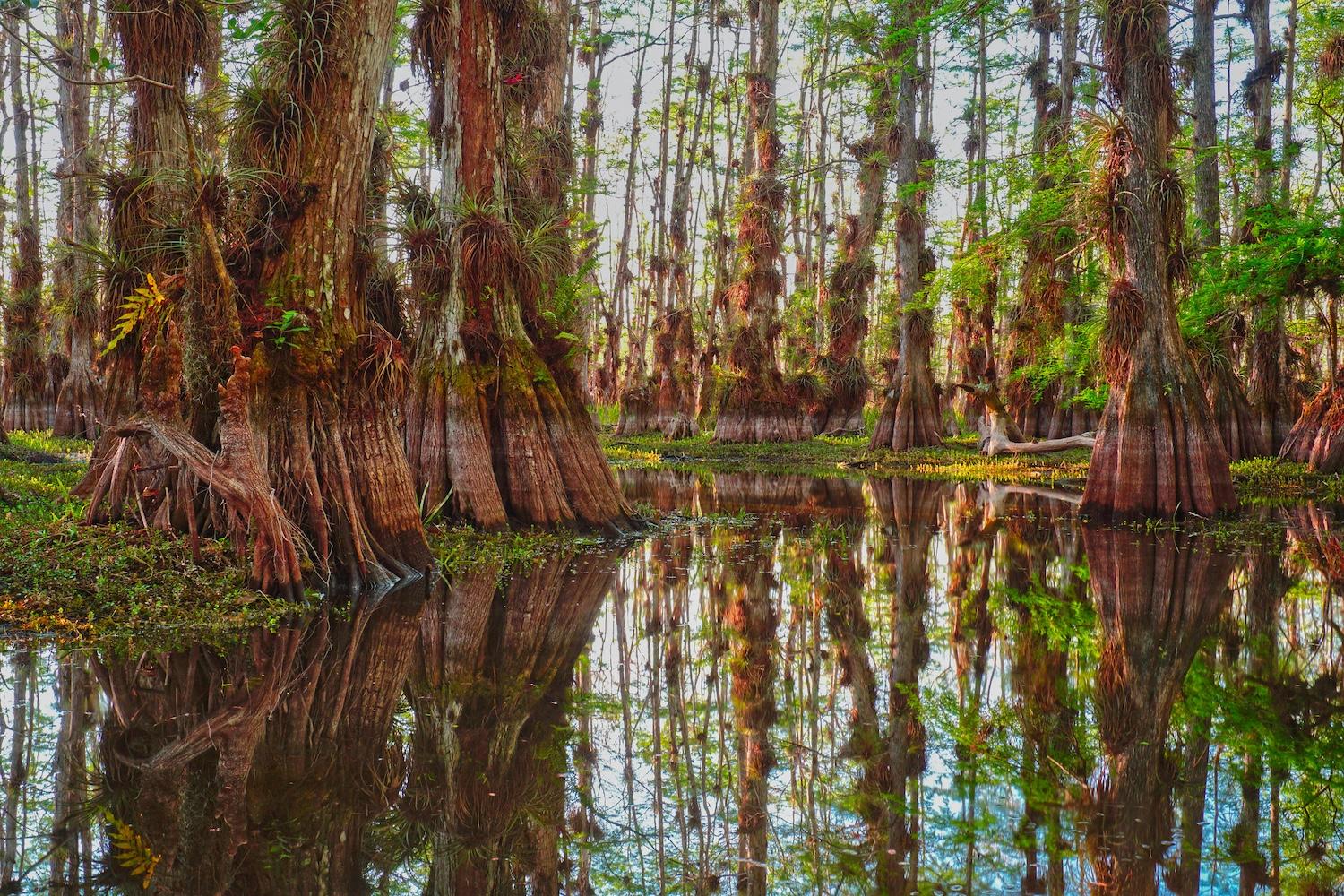Pending legislation in Congress would redesignate Chiricahua National Monument as Chiricahua National Park/NPS file
As the calendar runs down on the current session of Congress, there are a number of pieces of legislation that would involve or possibly impact the National Park System if they find their way into an omnibus lands bill that gains passage before the session adjourns.
While omnibus bills are not the most preferred vehicles for passing legislation, as some members of Congress believe individual pieces of proposed legislation should receive ample review in their chambers, the bills exist nevertheless. While we haven’t seen exactly what might find their way into an omnibus lands bill, among the candidates are legislation that would turn Chiricahua National Monument into a national park, one that would create a “designated operating partner” to oversee the Appalachian National Scenic Trail, and another that calls for a Benton MacKaye National Scenic Trail feasibility study.
There’s also pending legislation that would approve expansion of Big Bend National Park by about 6,000 acres, one that would transform Apostle Islands National Lakeshore into Apostle Islands National Park and Preserve, and one that, if passed, would forbid any official wilderness designation to be bestowed on Big Cypress National Preserve.
Here’s a glance at pending parks-related legislation that might find their way into a year-end public lands omnibus bill:
H.R. 1479 – Chiricahua National Park Act: This legislation would redesignate Chiricahua National Monument in Arizona as Chiricahua National Park. The monument protects beautiful forests and wildlife and the history of the Apache and other Native American Tribes as well as the well-preserved Faraway Ranch. It is also an important landscape within the unique Sky Island ecosystem of southeastern Arizona.
Read Barbara ‘Bo’ Jensen’s article on the Land of Standing Up Rocks.
H.R. 9159 – Appalachian Trail Centennial Act: This legislation would statutorily allow for the establishment of a “Designated Operating Partner” to serve as the primary non-profit organization for each national trail and further recognizes the Appalachian Trail Conservancy as the first.
H.R. 8403 – Benton MacKaye National Scenic Trail Feasibility Study Act: This legislation calls for a study of the Benton MacKaye Trail (BMT) for potential national scenic trail designation. The 300-mile BMT is an important recreational resource near urban southeastern centers and wends in and out of forests for 93 miles in Great Smoky Mountains National Park. Along with protecting biodiversity in the region, the trail boosts the economies of nearby rural communities.
H.R. 9111 – Apostle Islands National Park and Preserve Act: The bill would redesignate most of Apostle Islands National Lakeshore, which consists of 21 islands and a 12-mile stretch on the mainland, as a national park. Sand Island, currently within the lakeshore, would be redesignated a national preserve and would retain the hunting and trapping activities that would no longer be allowed on the other islands or mainland under the national park designation.

Pending legislation calls for a ban on official wilderness designation in Big Cypress National Preserve/NPS file
H.R. 8206 – To ensure that Big Cypress National Preserve may not be designated as wilderness or as a component of the National Wilderness Preservation System, and for other purposes: The National Park Service is required by law to evaluate all land managed by the Park Service for wilderness eligibility. The evaluation process includes a detailed wilderness study, and should eligible wilderness be found, wilderness designation can be recommended for approval by Congress. In Florida, wilderness has played a significant role in protecting Everglades National Park, containing the largest subtropical wilderness in the United States. Big Cypress National Preserve is a vital part of the Greater Everglades Ecosystem and is crucially important to the long-term success of the Comprehensive Everglades Restoration Plan, the largest ecosystem restoration project in the world. Big Cypress is one of the most threatened park units, with enduring damage from seismic oil exploration activities and unauthorized off-road vehicle use that imperil the existence of the panther, ghost orchid, and many other threatened and endangered species. Big Cypress has undergone several wilderness eligibility assessments over the years, yet wilderness has never officially been designated within its boundaries.
Read Why The National Park Service Recently Declined To Propose Official Wilderness At Big Cypress.
S. 4227: Joshua Tree National Park Expansion Act: This measure would expand Joshua Tree National Park by approximately 20,149 acres by amending the late Senator Dianne Feinstein’s 1994 California Desert Protection Act, which originally established the park. The expansion was recommended by the National Park Service.
S. 4228: Joshua Tree Dianne Feinstein Visitor Center Bill: This measure would rename the Cottonwood Visitor Center at Joshua Tree National Park as the Dianne Feinstein Visitor Center. The Cottonwood Visitor Center is located in the southern part of Joshua Tree National Park, just seven miles north of Interstate 10, and serves as the first contact station for the millions of visitors entering the park from the Interstate each year. The visitor center is the gateway to many hiking trails, including the Cottonwood Springs area.
S. 4851: Scarper Ridge Golden Gate National Recreation Area Boundary Adjustment Act: This measure would allow the National Park Service to acquire the 896-acre Scarper Ridge property in San Mateo County adjacent to Rancho Corral De Tierra, a 3,858-acre site that is already managed by the Park Service.
S. 45521: RESERVE Federal Land Act: This legislation calls for the Interior Department to work with the National Academy of Sciences to determine, among other things, whether federal lands reservation systems are more often used by “wealthier, more highly educated, and more likely to be white” clients. It also calls for an investigation into the fee structure and transparency of Recreation.gov, the government’s centralized travel planning platform and reservation system for 14 federal agencies.
Read About Senator Alex Padilla’s concerns about recreation.gov
S. 4222: Mojave National Preserve Boundary Adjustment Act: This legislation would expand Mojave National Preserve by approximately 20,000 acres to encompass the existing Castle Mountains National Monument.
